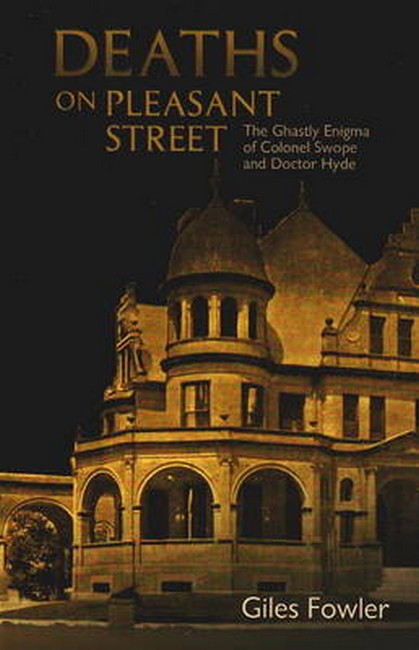Born in Kansas City in 1934, Giles Fowler joined the city's prominent newspaper, the Kansas City Star, following his graduation from the Columbia University Graduate School of Journalism. During his 24 years at the Star, Fowler worked as a reporter, film and theatre critic, and editor of the paper's Sunday magazine. He transferred this considerable background in journalism to teaching in 1980 and held positions at Kansas State University and Iowa State University's Greenlee School of Journalism, from which he retired in 2002. Fowler currently resides in Ames, Iowa.
Request Academic Copy
Please copy the ISBN for submitting review copy form
Description
Winner of ForeWord Magazine's Gold Medal for the True Crime Book of the Year - 2009 "It has been 100 years since multiple tragedies befell members of the prominent Swope family in Independence, Missouri. But Deaths on Pleasant Street gives those shadowy events and the ensuing scandal the immediacy of today's headlines. I began the book in early afternoon, and was unable to sleep until I'd turned the last page. Rarely does historical non-fiction deliver so effective a combination of exhaustive research and inspired storytelling." -- C W Gusewelle, journalist and author "The trail of western Missouri's crime of the twentieth century may be stone cold, but Giles Fowler's master sleuthing and briskly paced narrative restore this still-unsolved country-house mystery to vivid life. Deaths on Pleasant Street will captivate history buffs and who-dunnit fans alike." -- Harry Haskell, author of Boss-Busters and Sin Hounds "With a creeping sense of dread reminiscent of Gaslight and the immersive reporting that recalls In Cold Blood, Deaths on Pleasant Street elevates a sensational case of Victorian intrigue, skulduggery, ruinous accusations and black horror to the exalted realm of literature. Poring through a trove of historic manuscripts, legal records and the delicious yellow journalism of the era, Fowler has done graceful service to the dead by telling the tale 'with a consistent and unfailing writerly flair' more fully and fairly than it was ever told, or could possibly have been told, at the time." -- Patrick Beach, author of A Good Forest for Dying

